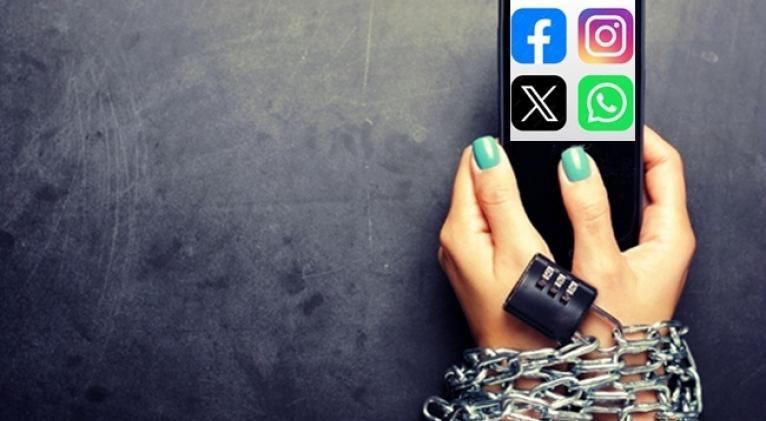Suffering from Fomo
especiales

A relatively new phobia is complicating the lives of many people: Fomo.
It's the "fear of missing out" on social media, and it leads to anxiety and poor sleep, not to mention extreme dependence on these networks.
Originally, the term was associated with marketing, which sought to instill in consumers that they would miss out on something good if they didn't buy a certain product or service.
However, as social media has become a part of everyday life, these platforms have begun to use Fomo as bait.
They remind internet users that if they don't visit social media regularly, they will miss out on important things—a manipulative way to attract more visitors.

And since no one wants to be a loser, many people fall for it, to the point that Fomo is seriously affecting mental health in ways never seen before.
Research published in the online science and health Journal ScienceDirect defined Fomo as "a widespread apprehension that others may be having rewarding experiences that one is missing."
Social media particularly targets preteens, teens, and young adults because these are age groups with a greater tendency to compare themselves with others.
Thus, these very groups are the most affected by this phobia, which has been particularly detected in North America, Asia, Europe, and Australia.

Six years ago, research on the topic already predicted the things internet users feared missing out on social media: the opportunity to meet up with friends, not knowing what others are doing, being left out of inside jokes or vacation plans, and also losing influence, popularity, or status.
Behind the Curtain of a Phobia
The psychosocial roots of this phenomenon are deep, and its impulses are difficult to overcome.
Fomo stems from the belief that social media users' position determines everything else in their lives.
Since that position is based on a very unstable and ever-changing foundation—due to the constant flux of the social network itself—all it takes is missing an important message to also lose the supposedly achieved position.

In essence, what lies behind Fomo is the need to belong to a group, to avoid loneliness by creating virtual connections.
Teenagers, in particular, tend to view social media as an extension of themselves, to the point that their social media identity sometimes becomes their most important concept of themselves.
Dependence and Fomo can become so severe that some sufferers may resort to extremes to increasingly position themselves on the platform and receive more likes or other recognition.

Social media users with Fomo may experience sleep disorders, social anxiety, clinical depression, decreased productivity and academic performance, and may also fall victim to feelings such as envy, jealousy, and resentment.
Fomo can lead to serious mental health disorders if it develops into social media addiction, which triggers brain processes similar to those of substance abusers.
Other digital phobias
If Fomo weren't enough, other phobias of the digital world have also emerged: Momo, Fomomo, and Foji.
Momo (Mystery of Missing Out) is the anxiety that emerges when social media contacts don't post anything. This feeling leads one to assume that friends are having exciting experiences without sharing them online, which intensifies the feeling of exclusion.
Fomomo (Fear of the Mystery of Missing Out) refers to the fear of missing out.
It combines elements of Fomo and Momo, but adds a level of uncertainty. This syndrome demonstrates how a lack of information can be as disturbing as its overabundance.
On the other side of the digital gaffe is Foji (Fear of Joining In), the fear of participating, of joining social media for fear of not knowing what to post or not receiving the desired applause.
It demonstrates how the pressure to garner likes and many comments can inhibit interaction.
And without fear of being wrong, it's worth highlighting, even from the perspective of these phobias, how social media is transforming the way we communicate and perceive reality, redefining expectations and even self-perception.
It doesn't happen to everyone. But if there were only a handful—and there are more—we would already have to worry about this hyperconnected world, whose roads, streets, and highways, far from virtual, earthly, and very tangible, are still adrift between wars, misery of all kinds, and uncertainties, which don't leave much time to learn the names of strange phobias.
Translated by Amilkal Labañino / CubaSí Translation Staff














Add new comment